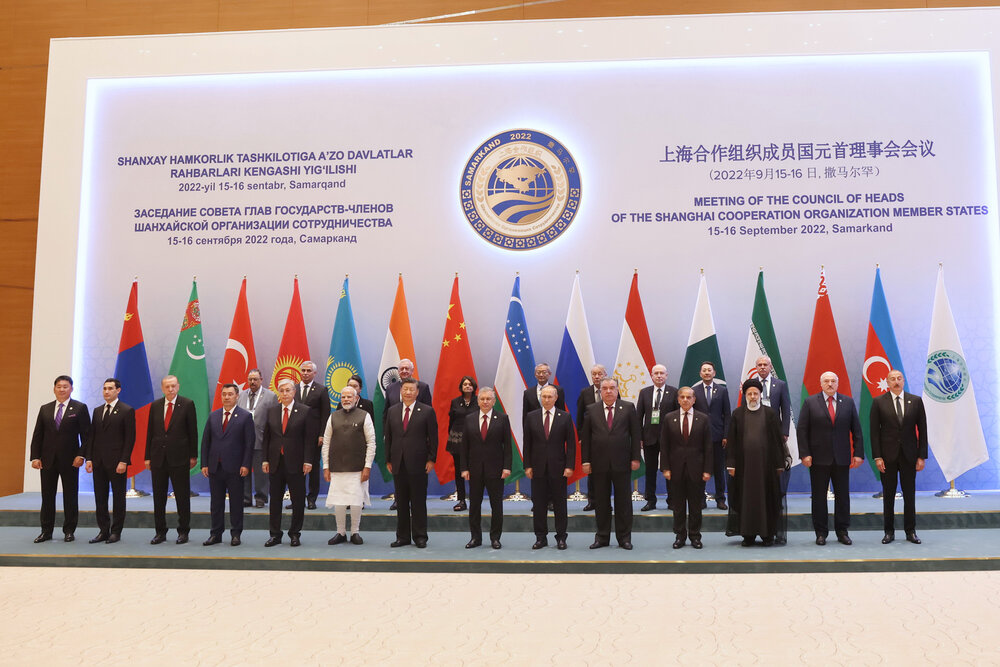Executive Summary
On 15 September, Iran signed obligations to become a permanent member of the Shanghai Cooperation Organization (SCO) – a nine-member organization largely led by China and Russia. The move is a significant symbolic success for President Raisi and conservative factions in Tehran who advocate stronger ties with Russia and China. Expectations are also in effect that the SCO will reduce Iran’s long-term economic dependency on the West, yet the immediate implications of the membership are considerably less certain.
Iran to join Shanghai Cooperation Organization as permanent member
On 15 September, Iran signed a memorandum of obligations to join the Shanghai Cooperation Organization (SCO) as a permanent member. The full membership was announced by the President of Uzbekistan, Shavkat Mirziyoyev, during the 22nd summit of the organization held in Samarkand where leaders of the eight member states, including President Xi Jinping and Vladimir Putin, met. With bureaucratic proceedings expected to last several months, full membership will most likely take effect no earlier than April 2023.
Previously a member with “observer” status, Iran commenced proceedings for permanent membership in September 2021 in what was President Raisi’s first significant foreign policy move since taking office in June. Membership has since been described by Iranian officials as an important step to enhancing strategic ties with Russia and China, and to joining an organization widely portrayed in Iran as a counterbalance to western influence in the region. To recall, in his 2021 speech at the SCO summit, President Raisi strongly criticized “US hegemony” and proclaimed that the world “has entered a new era” beyond “unilateralism” while portraying the organization as a vehicle to counter US sanctions.
The 15 August announcement was portrayed in similar terms, with government officials emphasizing the significance of Iran’s membership in wider regional developments. In a statement on Twitter, Foreign Minister Hossein Amirabdollahian said Iran has now “entered a new stage of various economic, commercial, transit and energy cooperation.” Raisi said the membership will be recorded as “one of the most important developments in the history of this organization”. State-linked outlets variably described the move as underscoring general shifts in the international order towards “multipolarity” and as a counterweight to the west.
SCO membership important domestic achievement for Raisi
As previously assessed by Talos, Iran’s membership is not insignificant. Domestically, the membership constitutes a significant if symbolic success for President Raisi and conservative factions who advocate closer ties with Russia and China, and the SCO provides Iran an institutional framework within which those ties can be enhanced. By expanding cooperation with ‘the East’, Iranian hardliners can simultaneously downplay the perceived importance of reliance on the West in line with a long-standing vision that the effects of western sanctions can be circumvented by forging alternative economic trade relations and reducing its reliance on the western financial system. Aside from bilateral trade with SCO members, this includes discussed plans for various sanctions-evading mechanisms that would in the future allow Iran to conduct financial transactions freely despite western sanctions.
However probable, this vision remains a key pillar of the so-called “resistance” economy advocated by Iranian hardliners which have galvanized opposition to efforts to restore the JCPOA and restore relations with the west. A surge in oil prices during 2022 and growing divisions between Russia/China and the West in the wake of the Ukraine war has arguably reinforced perceptions in Tehran that western engagement is not necessary to thrive economically or to avoid political isolation, with ties between Russia and Iran visibly growing over the year. The timing of Iran’s membership and associated rhetoric towards the formation of an anti-western bloc is therefore significant as JCPOA negotiations continue to stall.
Short and long-term implications
That said, the tangle implications of Iran’s membership remain to be seen, but are likely to fall short of the politicized rhetoric emanating from Tehran. As previously discussed by Talos, the SCO is not a military alliance, and with prospective members including long-standing US allies like the UAE, Saudi Arabia, and other Gulf States, Iranian perceptions of an “anti-western” bloc have limitations. The institutional limitations of the SCO are likewise significant and historically competing strategic interests of its members undermine efforts to formulate coherent policies. In economic terms, the membership is nominally set to facilitate bilateral trade agreements with other members, and progress on developing systems for alternative transactions may afford Iran the opportunity to reduce dependence on the west – yet such efforts remain at the early stages and are unlikely to generate benefits in the short term. For now, Iranian export capacities will remain hampered as long as Iran is denied free access to conduct transactions in the international banking system.
The military and strategic implications are likewise assessed as predominantly symbolic at this stage, but the SCO membership will nominally facilitate Iranian military ties with China and Russia in various fields. Joint exercises under the SCO umbrella can be expected to increase while current cooperation in areas like arms trade and technology may well expand as part of the SCO framework. The associated long-term implications of these developments on the regional balance of power are understandably significant but should be viewed as a continuation rather than an acceleration of Iran’s current policy trajectory.


